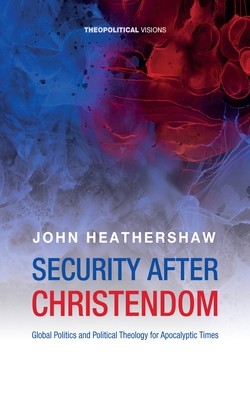
- We will send in 10–14 business days.
- Author: John Heathershaw
- Publisher: Cascade Books
- ISBN-10: 1532615337
- ISBN-13: 9781532615337
- Format: 15.2 x 22.9 x 1.9 cm, minkšti viršeliai
- Language: English
- SAVE -10% with code: EXTRA
Reviews
Description
We live in the wealthiest and most heavily defended world in history, so why do we feel so insecure? In a secular world, what does Christian theology have to say about this problem? Security after Christendom combines practical examples, social scientific research, and an ecumenical approach to political theology to answer these questions. It argues that Christendom was a plural phenomenon of imagined security communities of East and West whose unravelling continues to have implications for global politics today, as dramatically illustrated by Russia's war in Ukraine. While notions of a new Christendom are idolatrous and delusional, secular imaginaries of national security or the liberal international order are both destructive and unstable. True security--radical inclusion, nonviolent protection, and abundant provision--is an eschatological phenomenon, inaugurated by Christ. Security after Christendom is neither found in faithful government nor an exclusive church-as-polis approach but in relations of tension where the fallen powers are continuously confronted by prophetic practices. A post-Christendom community expresses its love for the world by seeking its security, providentially limiting the disorders of the secular age, and offering glimmers of a new earth.
EXTRA 10 % discount with code: EXTRA
The promotion ends in 23d.05:45:35
The discount code is valid when purchasing from 10 €. Discounts do not stack.
- Author: John Heathershaw
- Publisher: Cascade Books
- ISBN-10: 1532615337
- ISBN-13: 9781532615337
- Format: 15.2 x 22.9 x 1.9 cm, minkšti viršeliai
- Language: English English
We live in the wealthiest and most heavily defended world in history, so why do we feel so insecure? In a secular world, what does Christian theology have to say about this problem? Security after Christendom combines practical examples, social scientific research, and an ecumenical approach to political theology to answer these questions. It argues that Christendom was a plural phenomenon of imagined security communities of East and West whose unravelling continues to have implications for global politics today, as dramatically illustrated by Russia's war in Ukraine. While notions of a new Christendom are idolatrous and delusional, secular imaginaries of national security or the liberal international order are both destructive and unstable. True security--radical inclusion, nonviolent protection, and abundant provision--is an eschatological phenomenon, inaugurated by Christ. Security after Christendom is neither found in faithful government nor an exclusive church-as-polis approach but in relations of tension where the fallen powers are continuously confronted by prophetic practices. A post-Christendom community expresses its love for the world by seeking its security, providentially limiting the disorders of the secular age, and offering glimmers of a new earth.


Reviews